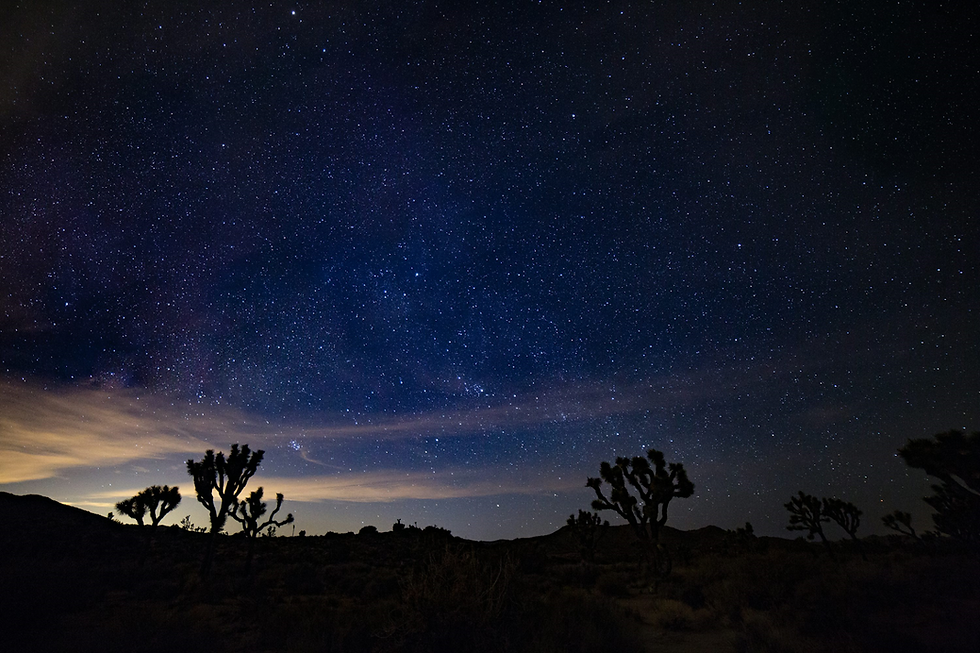Seen and Known
- Rachel Joyce

- May 15, 2025
- 4 min read

By Heather Marshall
Have you ever found yourself in a room full of people, yet felt completely unseen and unknown, almost as if you were invisible?
I can relate to this feeling. Thankfully, when I turn to God’s Word, my heart finds comfort in stories that reveal God's character through His interactions with individuals, especially those overlooked, cast aside, or shamed by society.
Two encounters that illustrate this can be found in Genesis 16, where we meet Hagar, an Egyptian slave, and in John 4, where we encounter the Samaritan woman at the well.
Though separated by centuries and cultures, these two women share a strikingly similar experience: a personal encounter with the living God while sitting beside a well of physical water. Their stories highlight themes of grace, identity, and God's desire to reach out to the marginalized.
Hagar, a servant of Sarai (later known as Sarah), was given to Abram (later known as Abraham) as his wife in their attempt to fulfill God's promise of descendants. As an Egyptian and a slave, Hagar had little control over her own life. She was used, discarded, and treated as a means to an end. When conflict arose between her and Sarai, Hagar fled into the wilderness, alone and pregnant, seeking solace by a spring of water.
Similarly, the Samaritan woman lived on the margins of her community. In John 4, she comes to draw water at noon — the hottest part of the day — suggesting that she was trying to avoid other women from town. We later learn that she had five previous husbands and was living with a man who wasn’t her husband. In her culture, this would have marked her as deeply shameful. Additionally, being a Samaritan meant she was despised by Jews, considered ethnically impure and religiously heretical.
Yet both women are chosen for divine encounters.
God doesn’t wait for people to clean themselves up before meeting them; He comes to them right where they are, amid their pain, sin, or shame.
In Genesis 16:7, the angel of the Lord finds Hagar in the wilderness. He calls her by name and acknowledges her situation. Rather than ignore her pain, He sees it and speaks directly to it.
Similarly, in John 4, Jesus intentionally travels through Samaria — a region most Jews would avoid — to meet this specific woman. He initiates a conversation with her, defying cultural, ethnic, and gender norms by saying, “Give me a drink” (John 4:7). From there, the conversation turns spiritual, personal, and transformative. Jesus reveals that He knows everything about her — her past, her present — and still offers her living water.
Both Hagar and the Samaritan woman were not actively looking for God, but God was searching for them. Each woman responded to her divine encounter with awe and gained a new understanding of who God is.
Hagar responds in Genesis 16:13 by giving God a name: El Roi, meaning “the God who sees me.” In a culture where she was invisible and insignificant, God saw her, knew her, and valued her. She returned to her difficult situation, but now with the assurance that God was watching over her and her child.
The Samaritan woman, upon realizing who Jesus is, leaves her water jar — the very reason she came to the well — and runs into town, proclaiming, “Come, see a man who told me everything I ever did. Could this be the Messiah?” (John 4:29). She becomes one of the first evangelists in Scripture, and through her testimony, many in her town come to believe in Jesus.
The image of these two women seated beside a pool of water stirs my heart. As they gaze at their reflection in the water, I wonder if they feel shame. Probably. But once they encounter “the Living Water,” they begin to see themselves through Him: valued, loved, and redeemed.
These women’s encounters with God give them identity, purpose, and a voice. Their stories reveal something essential about the heart of God: He sees and seeks out those whom the world has cast aside.
Hagar and the Samaritan woman were both considered “unclean” by cultural standards — one a foreign slave, the other a morally compromised Samaritan. Yet these are the individuals God chooses to speak to personally — a profound reminder for us today.
As Christians, who center the gospel around a personal relationship with Jesus, we find in these stories a clear example of Christ's mission: to seek and save the lost (Luke 19:10), to draw near to the brokenhearted (Psalm 34:18), and to offer grace where the world typically gives condemnation.
These stories also challenge us to examine our prejudices. Do we, like the culture surrounding these women, dismiss people based on their past, race, or social standing? Or do we reflect the heart of Jesus, who crossed every barrier to offer living water to the thirsty?
Ultimately, both stories point to the transformative power of the gospel. Hagar’s story foreshadows the God who enters into human suffering and provides hope. Her son Ishmael (his name means “God hears”) becomes a testament to God’s attention to the cries of the afflicted.
The Samaritan woman’s story, on the other hand, reveals the fullness of that hope realized in Christ. Jesus doesn’t just hear her cry; He offers Himself as the solution. The living water He promises is Himself — an invitation to a personal and eternal relationship with God that satisfies the deepest thirst.
Friends, these stories model what it means to encounter Jesus: honest confrontation, unearned grace, and total transformation. They also present a call to mission: once we’ve been seen and known by God, we are compelled to tell others.
Whether you relate more to Hagar — alone, used, and wandering — or to the Samaritan woman — ashamed, isolated, and searching — know this: God sees you. He knows your story. He is not repelled by your past or indifferent to your pain. Instead, He meets you in your wilderness and your noonday shame, offering living water that can quench your soul forever.
God calls us by name in a world that is quick to judge or ignore. He sees. He saves. He sends us out to share the good news that “Christ Jesus came into the world to save sinners” (1 Timothy 1:15b).







Comments